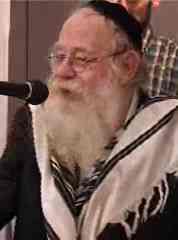I thought Judah at Kineti L'Tziyon struck a good balance in his
recent post "Pat Robertson on Haiti." Here's a quote from his closing thoughts:
...it is awfully confident (arrogant?) of a human to claim to know God’s intentions. Unless there’s engraved writing on the wall, fire from heaven, bare arm of the Lord coming down from the clouds, gosh. Without that, it’s all speculation, isn’t it?
Did Robertson say God revealed this to him? Not that I see. And even if he made such a claim, how do you know whether to believe him? Religious people are famous for making false prophecies.
Religion folk are too quick to lend to the supernatural what can be explained by the natural. Earthquakes happen, folks. Not every catastrophe is divine punishment.
We actually have a family from Haiti in our congregation. Last Shabbat, one of these precious women stood up to share with the congregation about the disaster and to give us an update on her family. Then she said, "And I just want to say something about what Pat Robertson said." Inside I cringed, but then she said something that really surprised me.
"He's right," she said. "My country has been heavily involved in voodoo from its earliest days. But don't just look at Haiti. Here in this nation, when prayer is taken out of schools, when people steal money from others, and perpetrate all sorts of evil on others--isn't that voodoo too?"
Her mini-sermon was passionate and reminded me of something Yeshua said, which Gene S. also commented on Judah's post:
Or do you suppose that those eighteen on whom the tower in Siloam fell and killed them were worse culprits than all the men who live in Jerusalem? I tell you, no, but unless you repent, you will all likewise perish. (Luke 13:4-5)
 From A Fire Burns in Breslov:
From A Fire Burns in Breslov:









